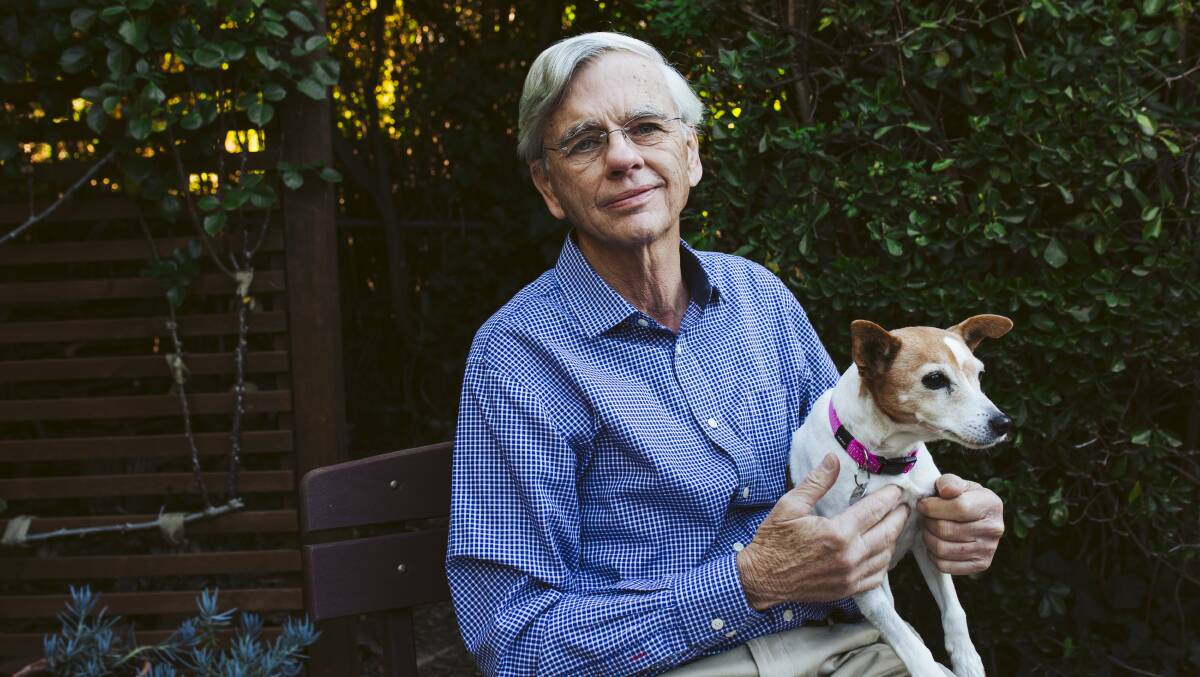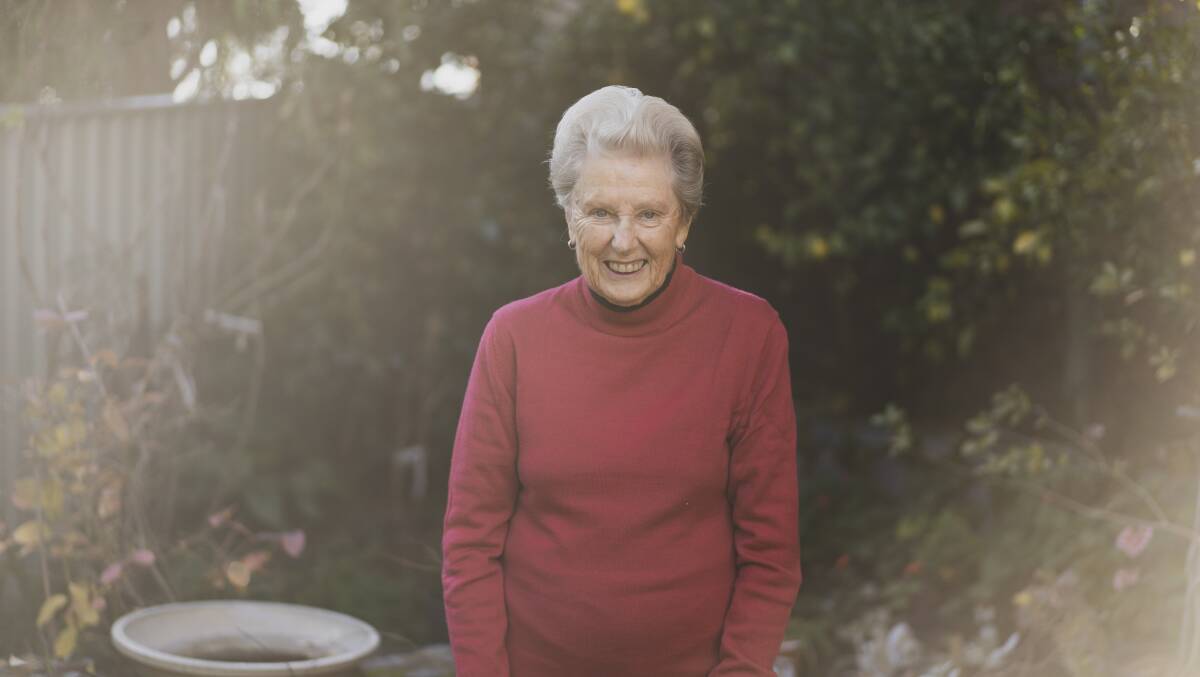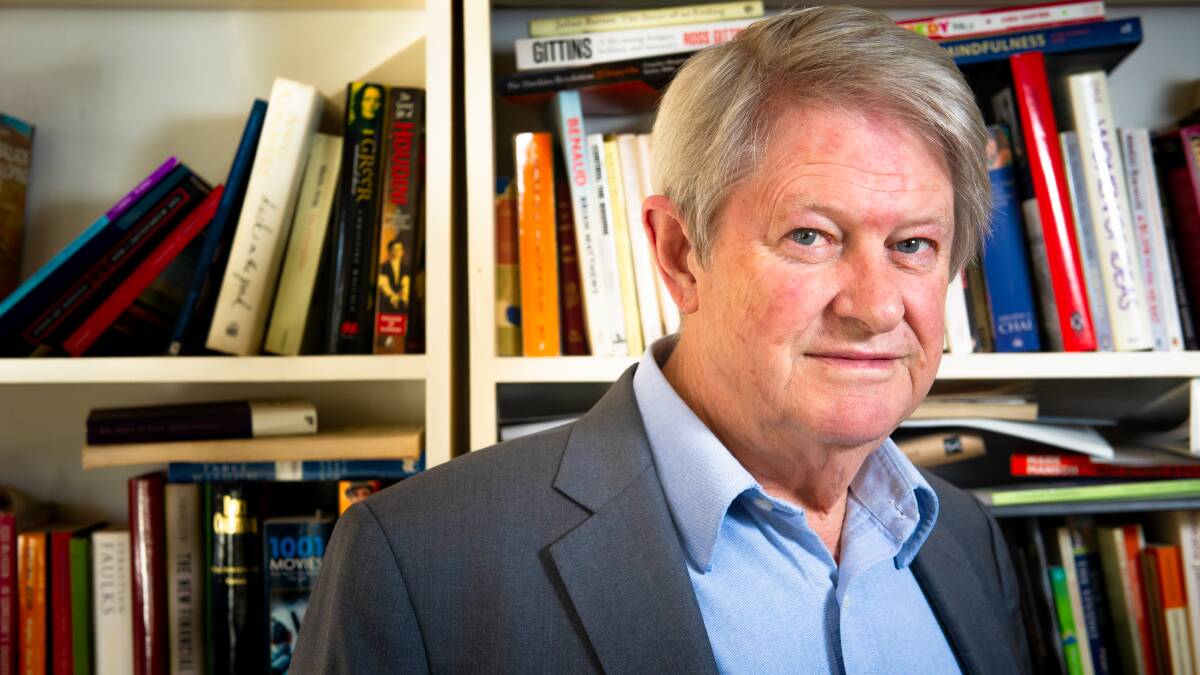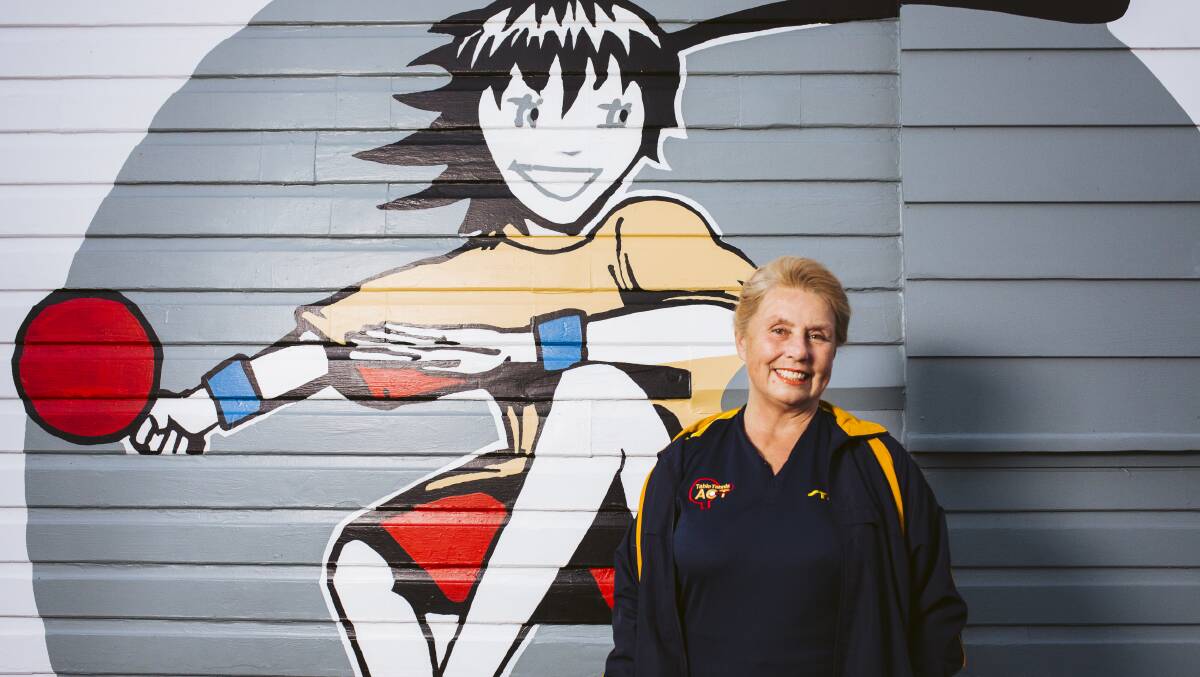
While the work of Dr Michael Banyard and his colleagues has always been of absolute importance, its significance has come to a head during the coronavirus pandemic.
Subscribe now for unlimited access.
$0/
(min cost $0)
or signup to continue reading
The Canberra resident and veterinarian is being awarded an Order of Australia Medal as part of the Queen's Birthday Honours on Monday. The recognition comes after decades of Dr Banyard's contribution to veterinary science including veterinary conservation, urban animal management and children's pet education.
Dr Banyard finished up his extended term as president of the Australian Veterinary Conservation Biology group last month, but he remains active in animal conservation as a member of its executive committee.
The group bridges the professional gap between veterinarians, zoologists, ecologists and decision-makers among others, with the aim of spreading the message that humans' health is inextricably linked with the health of wildlife and the wider environment.
"Two years ago it would have been hard to emphasise how important this area is, but today, with the bushfires and the COVID-19 virus, there can never be a clearer example of how important our environment is to our survival," Dr Banyard told The Canberra Times.
Dr Banyard said the destruction of habitats and the increase in people seeking out wild animals for food had led to their exposure to "emerging diseases", of which coronavirus was "only one of many".
"And as everybody knows now with the coronavirus pandemic, they're of grave concern both for human beings [and] wildlife," he said.
"[The] COVID-19 virus has come from wildlife - bats or pangolins were its origin.
"When the environment is significantly disturbed wildlife become displaced and overlap more with humans.
"Then, the frequency of emerging disease in humans increases."
Dr Banyard said the link between the environment and human health - and how it manifested in emerging diseases - was something the scientific and professional animal communities had been "crying in the wilderness" about for decades.
While politicians had started listening to the cries with the coronavirus pandemic, it was important they continued to rely on good science and rational thought.
"Australia stands alone almost in being an extremely good example of how public health measures, driven by good science, were able to have a very successful outcome in controlling the pandemic," Dr Banyard said.
"If only one thing could come of the pandemic, [it should be] that policymakers and government realise the same scientific knowledge should be applied to climate change and [other] emerging diseases.
"It should be applied to habitat destruction and deforestation - the same rational thinking and science base needs to be applied to all of these areas."
Dr Banyard said he was "chuffed" to be awarded an Order of Australia Medal, but conscious of the many other people working hard for the conservation of wildlife and the environment.
'It's very natural to help people': Canberra Girls Grammar alumnus honoured on Queen's Birthday
When Margaret McRae Cornwell found out she was to be awarded a Medal of the Order of Australia for her service to the ACT community, she didn't realise just how many volunteer positions she had held over the years.
"I was very honoured to be recognised for the various community activities I've undertaken," she said.
"I didn't realise how many I had undertaken. It's just very natural for me to help people."

The avid gardener and cook has had a long association with Canberra Girls Grammar School since she enrolled as a student in 1938. Her father was involved in starting the plant stall as a school fundraising effort, a tradition that Mrs Cornwell has continued as a volunteer to this day.
She has held positions at the Grammarian's Association, the school board and the Parents and Friends Association. She is also a volunteer for the school archives.
Her two daughters and two granddaughters followed in her footsteps by attending Canberra Girls Grammar.
"The school has grown immensely. When I started school there was less than 100 [students] there and now there's 1300. And the facilities there are amazing. From the science labs to the chapel and the boarding house. It's still the happy place that it always was."
Most days you'll find Mrs Cornwell in her garden, picking kumquats or tending to her heirloom plants. Otherwise you might find her working at the Old Parliament House Rose Gardens where she's been a volunteer for the past 10 years.
"We only go once a week for two hours and it's amazing what work we've got done."
She said more of the burden of volunteer work was falling on retired people since younger parents were time poor because of work commitments to keep up with the rising cost of living.
"The young haven't got time to go on committees. They're both working, they've really got to be dedicated to give up time to come to meetings which is very difficult for them when they have young families."
Mrs Cornwell developed a love of food while studying in Melbourne and worked as a cooking demonstrator at the ACT Electricity Authority. She wrote a book called Margaret Cornwell's Useful, Everyday Cookbook.
"I haven't let the grass grow under my feet," she said.
Millions of graduates worldwide will suffer because they don't have a HECS scheme
The coronavirus pandemic will cause hundreds of millions of university graduates to default on their student loans, but not in Australia.
That's thanks in part to the work of ANU economist Professor Bruce Chapman, who designed the Higher Education Contribution Scheme (HECS) that was implemented by the Hawke Government in 1989.

Professor Chapman has been appointed an Officer of the Order of Australia for his contribution to this radical idea that transformed higher education.
"It just seemed such a sensible thing that people would only have to pay for university when they were in a position to do so. It really came from discussions with smart people. No other country was doing this," Professor Chapman said.
There were no textbooks on how to make income contingent loans work but progressive thinking, especially from then education minister John Dawkins, made the concept a reality.
"There was a fight and the most important fight wasn't with the students and it wasn't even with the bureaucracy, it was with the left wing of the Labor party and caucus in particular and it was because they felt very strongly that there should not be any fees."
A handful of countries, including New Zealand and England, followed Australia's lead but most countries have a time-based system where student loans must be paid off whether the graduate is employed or not.
In some countries 60 to 70 per cent of debtors default on their loans, a problem that Professor Chapman says will only be exacerbated by the decimation in all labour markets because of the COVID-19 pandemic.
"To me it's so important because of the damage that will be done to a lot of young people simply because they've got the wrong loan system."
Many countries are now on the verge of adopting a HECS-style system. Professor Chapman is working with colleagues in Colombia, Brazil, Malaysia, Japan and Ireland to work with governments on how income-contingent student loans could be introduced.
Other countries have been slow to act partly because it is an unfamiliar kind of debt and partly because of special interests such as debt collection agencies that depend on the existing systems.
"I've now counted about nine languages where I've heard the words, 'that's impossible' and 'it'll never work'. I first heard that in Canberra in 1988. I've heard it in Spanish, French and Italian and German and it's just the nature of good bureaucracy to resist change until they're sure."
Closer to home, Professor Chapman has modelled many other scenarios that could potentially benefit from HECS-style loans. They could be applied to drought relief for farmers, paid parental leave, low-level criminal fines, financing solar panels for low-income earners, public housing rent payment and environmental investment on farms.
Recently he wrote a working paper about how revenue contingent loans could help business recover from the pandemic without placing an additional burden on the federal budget.
"The economics of this are seriously important and different," he said.
"I'd love it if we had governments as progressive as that Hawke-Keating government."
'Give the game a go': OAM for Table Tennis advocate
Rosanna Kobiela-Horn will be awarded a Medal of the Order of Australia on Monday for her contributions to table tennis, including her advocacy for the participation of people with disability in sport.

"My introduction to table tennis was through my son, Patrick, who is a person with a disability - he has cerebral palsy," Mrs Kobiela-Horn said.
"At the age of 10 my husband Stephan introduced Patrick to table tennis where he was mentored by Arthur Wilks - the father of national para table tennis competitions."
Since being introduced to the sport, Patrick Horn went on to represent Australia in international para table tennis matches. He continues to play and coach the sport at Table Tennis ACT.
"I got involved with Table Tennis ACT as a board member assisting with events and promoting events and running events such as national veterans championships held in Canberra and the national para championships held in 2010 and 2018."
As a board member of Table Tennis ACT she founded the Special Olympics Table Tennis Program in Canberra in 2017.
She is also state level table tennis umpire, and runs school events such as secondary school table tennis championships.
She also runs para training for table tennis athletes with disabilities including a program at Black Mountain School that has run for the last six years.
Mrs Kobiela-Horn moved to Australia from Poland in 1979. After a year of living in Sydney she and her husband moved to Canberra in 1981.
She is an active member of the Polish community in Canberra and is a board member of the Friends of Chopin Australia.
Outside of her volunteer work, Mrs Kobiela-Horn works as a graphic designer at the Department of Veteran Affairs.
Mrs Kobiela-Horn says she feels thrilled, humbled and surprised to receive a Medal of the Order of Australia.
"Its wonderful to be among a group of people who contribute to , in our case development in the social arena, supporting sport that suits all ages and all abilities," she said.
"The fact that i was nominated gives me great pleasure as a non-Australian-born person as well."
Mrs Kobiela-Horn said she thanks her husband Stephan, her son Patrick, her daughters Thea, and Emily-Rose, sons in law's Steven Turnbull and Aruvin Karunakaran for their support, as well as the tennis players and volunteers at Table Tennis ACT.
She said that table tennis was suitable for all ages and abilities.
"We have two players aged over 90, so [its for] all ages."
"The same goes for disabilities, you can play table tennis in a wheelchair, you can play table tennis if you have a physical disability but you are ambulant, we can play table tennis if you have an intellectual disability," she said.
"Give the game a go."




